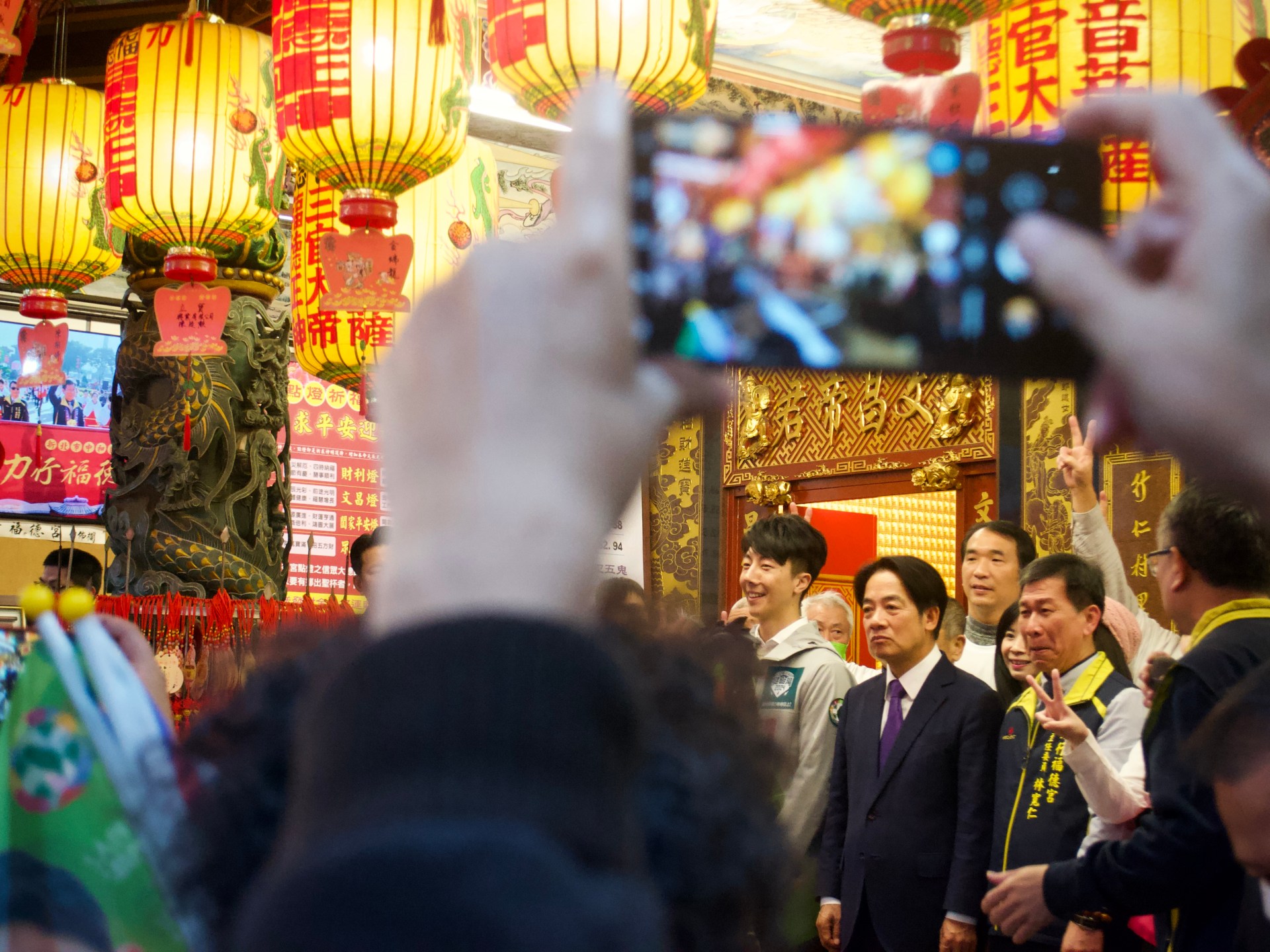
Why temples are a top campaign stop in Taiwan’s election
Al Jazeera
Temples help politicians meet local voters, but there are concerns some may be too close to Beijing.
New Taipei City, Taiwan – At Lixing Fude temple, one of the largest in the densely-packed district of Zhonghe in New Taipei City, Democratic Progressive Party (DPP) presidential candidate William Lai Ching-te and DPP legislative candidate Wu Zheng lit incense and prayed for health, safety and peace for Taiwan.
Left at the altar were offerings for the community’s local god: fresh fruit baskets, green flags and water bottles with Lai’s and Wu’s faces on them.
After an opening ceremony, temple leaders offered the candidates large bunches of garlic sprouts – symbolising the popular phrase “dongsuan” that is often heard at campaign rallies and means “frozen garlic” in Mandarin, but sounds like “be elected” in Taiwanese. Then Lai and Wu, surrounded by local party and temple leaders, addressed the crowd of about 200 people packed into the temple’s atrium.
“For a long time, Taiwan has been an orphan in the world. But now it’s different. Everyone is looking at Taiwan,” Wu said. “We have to vote for Lai so we can continue the last eight years of [current president] Tsai’s politics that make us well-known in the world.”
The fusion of political and religious life, marked by dozens of temple visits, meetings with religious leaders, and attendance at religious events and festivals, is a cultural staple during the Taiwan elections.
